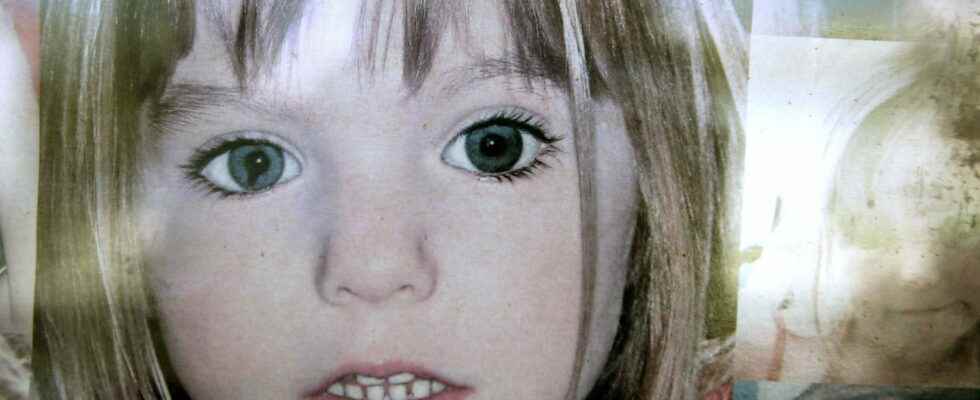In the Maddie McCann case, a young woman thinks she is this little girl who disappeared in 2007 in Portugal. She wants to do a DNA test. How’s it going ? How much does it cost ?
I’Deoxyribonucleic acid best known by the name of of DNA is a molecule that includes all of an individual’s information, and which is present in the nucleus of every cell in his body. I’DNA contains and transmits genetic information and determines hereditary criteria. Each person has a unique DNA. There are tests that can compare one person’s DNA with another. In L’Maddie McCann casea young woman thinks she may be this little English girl who disappeared in Portugal in 2007. This 21-year-old German launched an appeal on her instagram account February 20 for ask the girl’s parents for a DNA test.
Can a DNA test be done in France?
In France, DNA analysis cannot be undertaken only for medical or scientific research purposes. Since 2004, the identification of a person can also be carried out for legal purposes. Legally (Item R1131-1), DNA tests for medical purposes are authorized, prescribed by a geneticist or working in conjunction with a clinical genetics team to:
- ask, confirm or invalidate the diagnosis of a disease of a genetic nature;
- search for genetic characteristics at the origin of a disease;
- adapt the supported of a person according to their genetic characteristics.
It is also possible to buy DNA tests on the Internet but it is prohibited in France and punishable by a fine ranging from 3750 to 15,000 euros and a prison sentence of one year.
When the DNA test is carried out on medical request : the person’s consent must be obtained in writing prior to carrying out the examination, after they have been duly informed of its nature and purpose. The consent mentions the purpose of the examination. It is revocable without form and at any time (Article 16-10 of the Civil Code), IThe examinations must be carried out by laboratories authorized by the regional health agency and the result is first communicated to the prescribing doctor who then communicates it to the patient, unless the latter has expressed his refusal to know the content. Outside this framework, it is a matter of doing a DNA test by sending dedicated kits purchased on the Internet (the MyHeritage and FamilyTreeDNA sites send these tests to France). Once the online purchase has been made, you must allow 4 to 5 working days before receiving the kit at home.
To collect DNA, the two mouth swab options are possible:
- I’cheek swab. His DNA is taken by passing a cheek swab (a kind of cotton swab) inside the cheek. The swab should then be placed inside a sterile package.
- THE spittoon. Simply spit out some saliva in a sterile container.
What is the timeframe for getting the results?
After collecting the DNA, the user must return their sample to the laboratory. The secure results are available online within 3 to 6 weeks, on the user’s personal account.
How much does a DNA test cost?
The average price is between 70 and 90 euros.
Who invented the DNA test?
In 1985, Sir Alec Jeffreys, British doctor in genetics, discovered the method of identification byDNA (Deoxyribonucleic acid). The technique is marketed in 1987. With the help of science, we can now determine the ancient ethnic origins of one’s patrilineal ancestors, by testing the Y chromosome DNA (also called Y-DNA or Y-DNA) inherited paternally.
What are the different types of DNA test?
There are different types of DNA tests:
- THE paternity test (it is impossible for a person to do a paternity test without having first received authorization from a judge who will have accepted the request after long arguments),
- THE maternity test,
- THE brotherhood test,
- THE Y chromosome test,
- THE mtDNA test (Mitochondrial),
- THE zygosity test,
- THE prenatal paternity test,
- THE fetal trisomy test and the genealogy test.
Indeed, all these types of DNA tests can be carried out from a mouth swabexcept the prenatal paternity test since the child in question is not yet born.
Which DNA test to choose?
From online labs which offer the performance of reliable DNA tests, we can cite 23andMe, MyHeritage DNA and AncestryDNA. 23andMe has 150 reference populations, while AncestryDNA provides its customers with a database of 350 regions. For its part, MyHeritage DNA promises its customers reliable and credible results, with 42 origins available to perform the sampling. The “recreational” purchase of DNA tests on these sites is therefore prohibited in France. For people who want to try despite everything, know that it is better select a site or laboratory that complies with the ISO 17025 standard.
Source: Legifrance.
